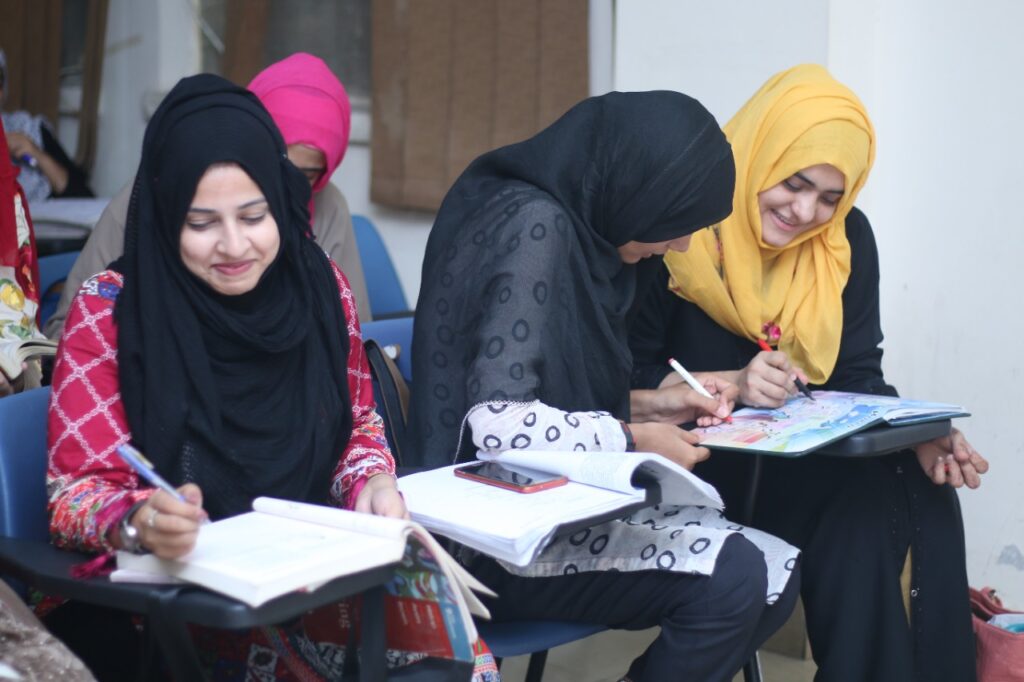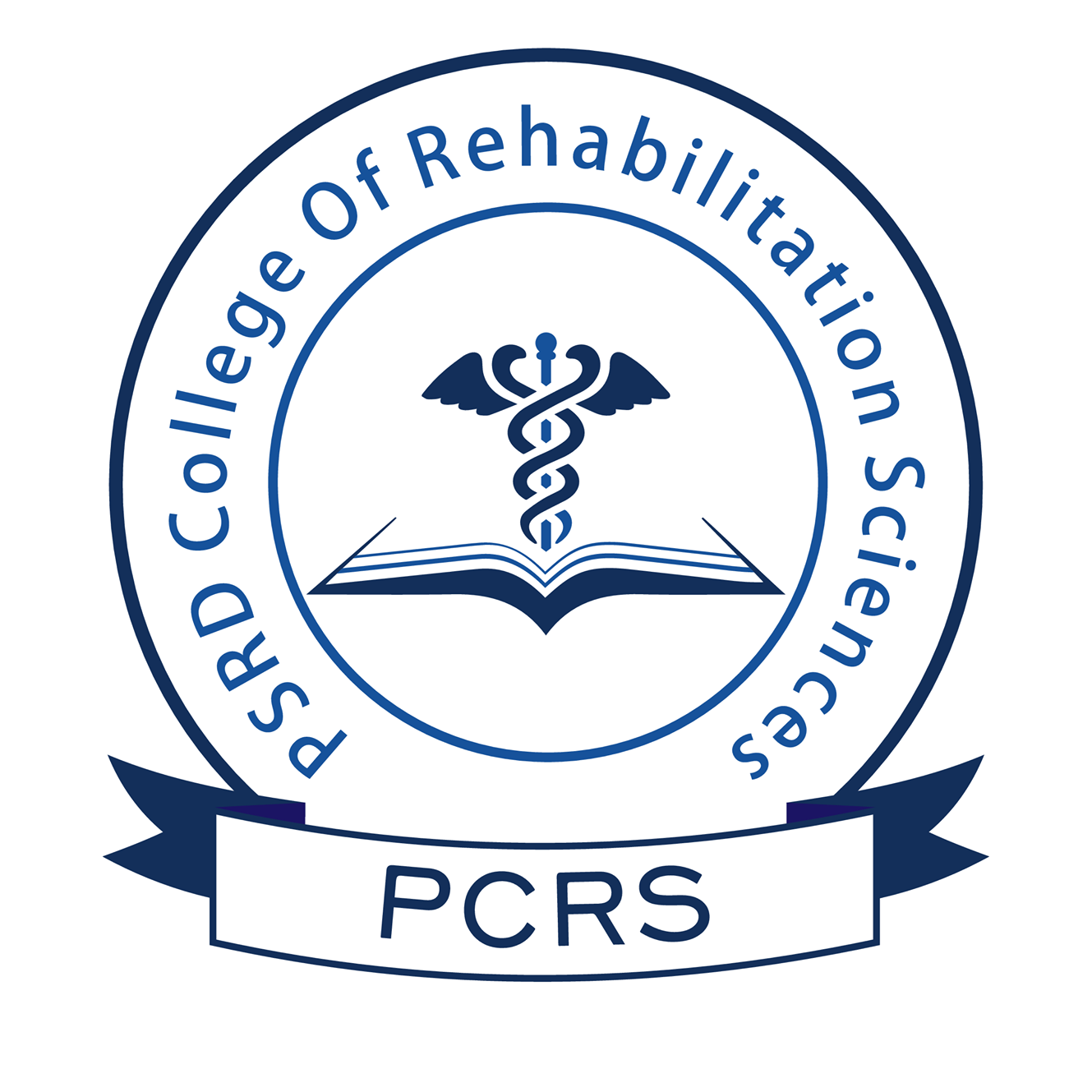B.Sc. (Hons.) Occupational Therapy
What is Occupational Therapy?
Occupational Therapy (OT) is a medical profession that works with infants, toddlers, adolescents, adults, and older adults. OT can be provided to patients with any type of injury, disease/disorder, or disability
What is an Occupation?
In Occupational Therapy, the word ‘Occupation’ refers to anything that takes time and space. An occupation can include
- Eating
- Walking
- Playing
- Working
- Sleeping
- Communicating
- Dressing
- Driving and more…

Who needs Occupational Therapy?
When a person experiences any physical, psychological, developmental, or cognitive illness, the symptoms of their illness impact their functioning in daily activities, work, leisure, socialization, and self-care. In other words, any injury, illness/disease, disorder, or disability can affect any of their occupations; hence, making them a candidate for Occupational Therapy services.
How does an Occupational Therapist work?
An Occupational Therapist works by assessing and providing rehabilitation while a patient is admitted to the hospital, pre-and post-surgery, and on an outpatient basis. They aim to (1) prevent disability, (2) restore premorbid function, (3) support function so the patient is productive to some extent, and (4) prevent complications post-surgery.
Occupational Therapists provide
- Functional rehabilitation,
- Non-pharmacological symptom management
- Cognitive rehabilitation
- Psychosocial rehabilitation
- Physical rehabilitation
- Disability management
- Prescription and training of mobility aids and adaptive equipment
- Return to work planning and work hardening
Where do Occupational Therapists work?
Occupational Therapists can work in pediatrics, rheumatology, surgery, oncology, internal medicine, neurology, cardiology, and psychiatry departments. They can start their private practice or work in public and private hospitals, medical rehabilitation units, community health centers, home care services, geriatric care units, psychiatric centers, vocational rehabilitation departments, schools and universities, research centers, burn units, and retirement and respite centers.
Occupational Therapists are working at different hospitals across Pakistan, including Pakistan Society of Rehabilitation for Differently Abled (PSRD), Children’s Hospital and Institute of Child Health (CH&ICH), Shaukat Khanum Memorial Cancer Hospital and Research Center (SKMCH&RC), Cantonment Military Hospital (CMH), Shifa International Hospital, Armed Forces Institute of Regenerative Medicine (AFIRM), Agha Khan University Hospital and several more.
How do you become an Occupational Therapist?
To become an Occupational Therapist, you must complete B.Sc. (Hons.) Occupational Therapy. This is a four-year graduate program offered at PSRD College of Rehabilitation Sciences. The aim of this degree program is to equip students with professional knowledge, skills, techniques, and ethical values to enable them to become experts in functional rehabilitation and health service delivery.
With a team of internationally trained teachers, the B.Sc. (Hons.) Occupational Therapy at PSRD College of Rehabilitation is one of the best institutes for Occupational Therapy. Our students experience a diversity of clinical opportunities, receive operation theatre exposure, work hands-on with patients from the second year onwards, and become leaders in the field of Occupational Therapy. In 2021-2022, our students have received their clinical training from
- Pakistan Society for the Rehabilitation of the Differently Abled (PSRD)
- Shaukat Khanum Memorial Cancer Hospital and Research Center (SKMCH&RC)
- Mayo Hospital Lahore
- Jinnah Burns and Reconstructive Surgery Center (JBRSC)
- Children’s Hospital and Institute of Child Health (CHICH)
- Social Welfare Complex
- Center for Mentally Challenged Children (Chaman)
- Welfare Services for Persons with Different Abilities
- Services Hospital
- Addiction and Psychiatric Center
- Mind Professionals
- Fountain House
OBJECTIVES:
Occupational therapy education and training should enable the student:
-
- To provide at an undergraduate level, education and clinical/professional training which involves research and the clinical practice uses a variety of teaching and learning methods including self-directed learning and integrates the development of theoretical knowledge with clinical skills across a wide range of patients
- To develop student learning and academic skills over four years thereby promoting continuing professional development and lifelong learning.
- To enable students to meet the requirements of the relevant professional and statutory bodies.
- To foster the development of professional knowledge and clinical skills across a wide range of patients presenting communication difficulties and to meet the clinical placement requirements of different hospitals.
- To provide opportunities for self-monitoring and personal development for the formation of reflective practitioners
- To produce professionals who are capable of applying theoretical knowledge to the diagnostic, therapeutic, educative, and technical roles of the Occupational Therapists within the healthcare, educational and social welfare sectors.
